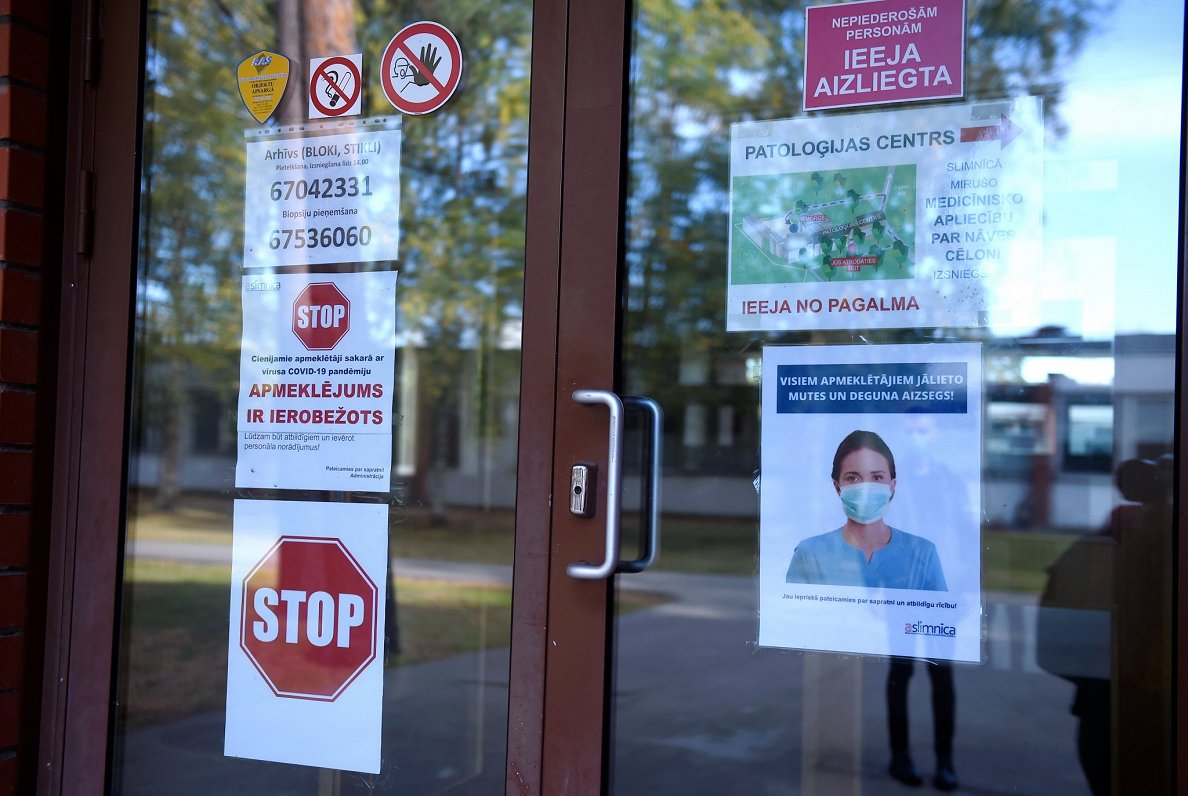At Paula Stradiņa clinical university hospital, 89% of beds reserved for COVID-19 patients are already full.
“Last week we observed 7 to 9 new patients per day, but now these are 14 COVID-19 positive patients who are being hospitalized every day. This makes hospital work very difficult because of the limited number of beds and staff. This is the moment when we look at which other services can be postponed to some later time.
It is therefore possible that the patient receives a call from the hospital for a rescheduled service last minute, unfortunately we are in this situation at the moment,” said Janita Veinberga, the hospital's representative.
Imants Paeglis, head of Riga East Clinical University Hospital (RAKUS), said that around 70% of COVID-19 beds are full and currently around 200 employees cannot work.
Grigorijs Semjonovs, head of Daugavpils regional hospital, said the hospital was working normally. However, he pointed to the current trend observed in many hospitals that many patients are currently avoiding healthcare services.
Semjonovs said that “people are en masse refusing and not arriving at the specified date and do not want to receive the service in question, because they are now afraid of medical establishments with intensive patient flow and a large number of contacts. It is a problem that we face, despite the fact that we do not limit the provision of services,” Semjonovs said.
Association Par sirdi (For the Heart) head Inese Mauriņa said that many services are still available, including for oncology and cardiovascular patients, and that they should use them.
"I want to encourage people with chronical diseases to go to the doctor as planned while it is still possible. If one's health deteriorates, it is more likely to get complications in case COVID-19 is contracted," said Mauriņa.
She added that queues which were long even before the pandemic are getting longer. The problem must be solved, according to Mauriņa.
Hospitals and patient organizations urge people not to gather, to wear face masks and to keep distance to avoid deterioration of the epidemiological situation.































